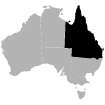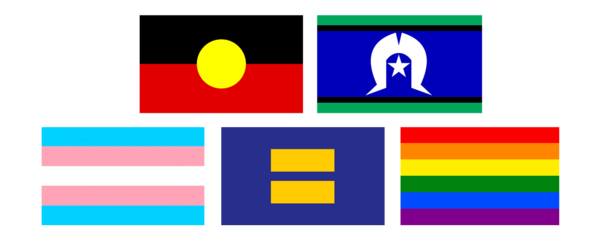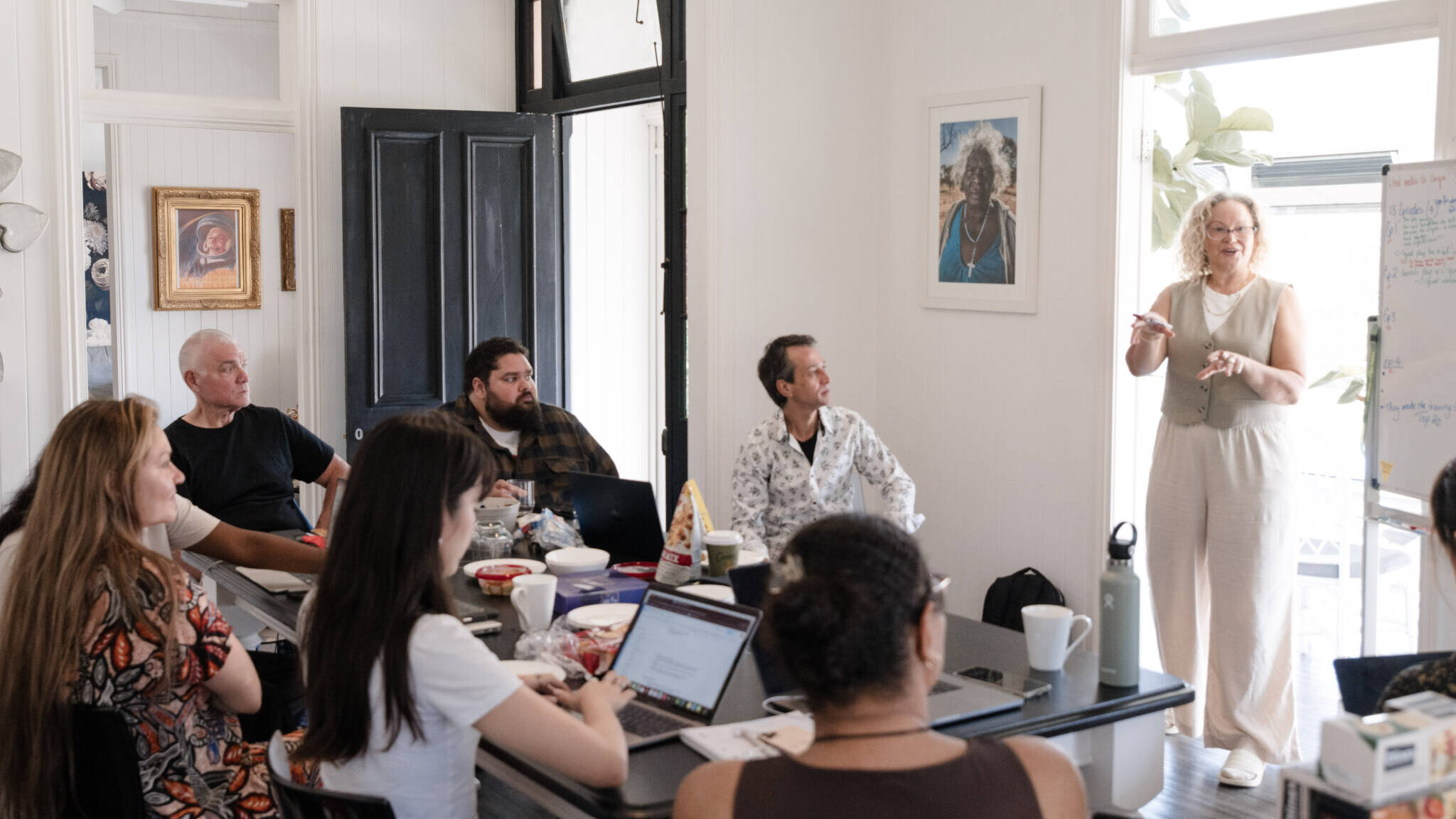
Image: Netball writers’ room, by Jade Ferguson – Visual Poets Society
Leah Purcell, an icon of Australian film and television, is back in her home state of Queensland and in the writers’ room of a dream project close to her heart.
Laughter cascades down the street from the character Queenslander house where Leah, alongside her partner and collaborator Bain Stewart, have gathered a crack team of writers to begin development on a new series for young people, centred in the action-packed world of competitive netball.
The project is one of three new works from Oombarra Productions (The Drover’s Wife, All My Friends are Racist) that Screen Queensland is supporting through the new Development Fund for production slates. With the current working title of Netball, the series is centred around three talented 14-year-old netballers from different backgrounds who forge an unlikely alliance, united by the game they love.
A self-confessed netball tragic from an early age, Leah has long been inspired to progress a series based around the number one participation sport for girls in Australia. As the lead characters chase their chance to be selected for the junior state netball team, the high-stakes training camp becomes a catalyst for exploring identity among the bonds of friendship and teamwork.
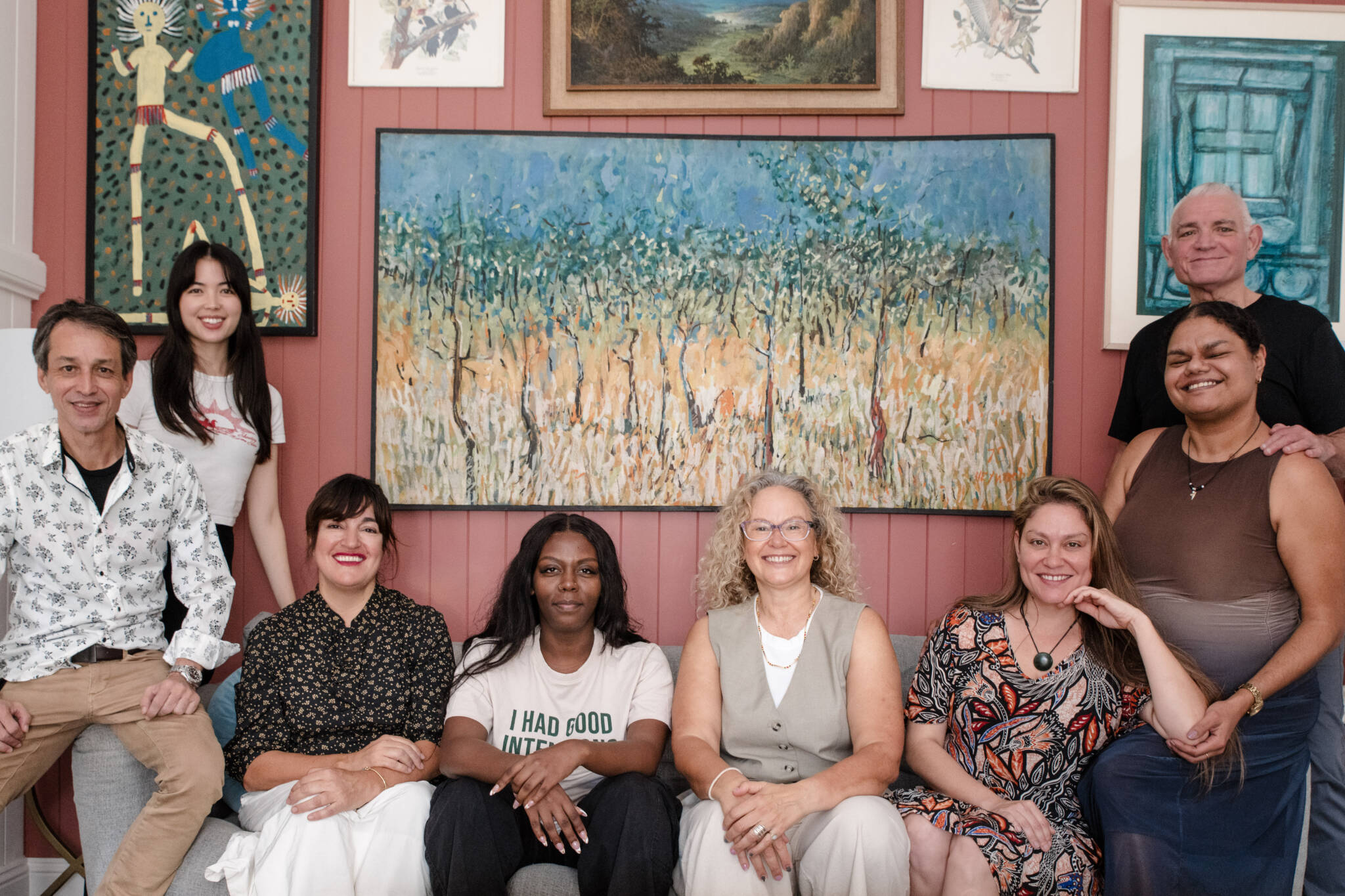
As with Black Chicks Talking, which captured the contemporary Blak female experience, Leah has recognised a gap in the market for drama focused on younger teenage girls and the sport of netball. The plan is to air the series on free-to-air television or a streaming platform, given the potential for a broad audience, especially with Australia hosting the World Netball Cup in 2027.
Reflecting on her experience of the writers’ room, Leah said “I’ve been in many writer’s rooms, but Oombarra Productions’ Netball room was exceptional. This is precisely how a Blak writer’s room should run—a Blak out!
“Cultural input was vital, with Mob taking ownership of the characters. Everyone’s contributions were meaningful and the energy was infectious—loud, proud and full of Blakfella joy,” Leah said.
“The work was done efficiently, with an authentic voice that was rich, layered, and informative. The room maintained a high intellectual and savvy standard, ensuring strong story and character development that stayed true to the narrative.
“A diverse mix of voices brought fresh perspectives, enriching the characters and making the story authentic and inclusive.”
Those voices also allowed for a mix of age and gender within the Netball writers’ room, particularly as they focused on the three main protagonists. Guided by Leah as the creator and lead writer, Huda Fadlelmawla from South Sudan was writing for ‘Zuri’, while English Australian writer Nicole Dade focussed on ‘Hannah’ and Chantelle Murray developed the First Nations character ‘Latisha’.
For First Nations writer and director Chantelle Murray (The Lost Tiger), the experience of building out new characters, especially ‘Latisha’, set against a sport played by over 1.2 million women, men and children in Australia alone, was just as energising as the game of netball itself.
“This room was one of the safest rooms I’ve had the privilege to be a part of. Every voice was heard and noted,” Chantelle reflected.
“Representation means the world to me, as I didn’t see that on the screen growing up, so to be a part of Netball feels like making history. I learnt so much watching our national treasure do her thing. The way Leah upskills and takes care of the next generation is healing to see and be a part of”.
Huda Fadlelmawla (aka Huda “The Goddess”) is a national slam poetry champion, educator and community activist who joined the writer’s room to infuse the character of ‘Zuri’, a Sudanese Australian teenager, with an authentic perspective.
“As a Black Sudanese author and poet, it’s rare for me to enter spaces that truly know how to hold my story and respect its complexity, without trying to reduce it to a stereotype. It’s even rarer to find a space where Blackness is a priority and culture is valued, not tokenised,” Huda said.
“Those four days of the Netball writers’ room were an invitation by the First Nations writers and team to bring all of me. Not to abandon part of myself at the door and to bring my culture, my truth, my challenges—but also our magic into the room. It was an invitation for connection, for accuracy”.
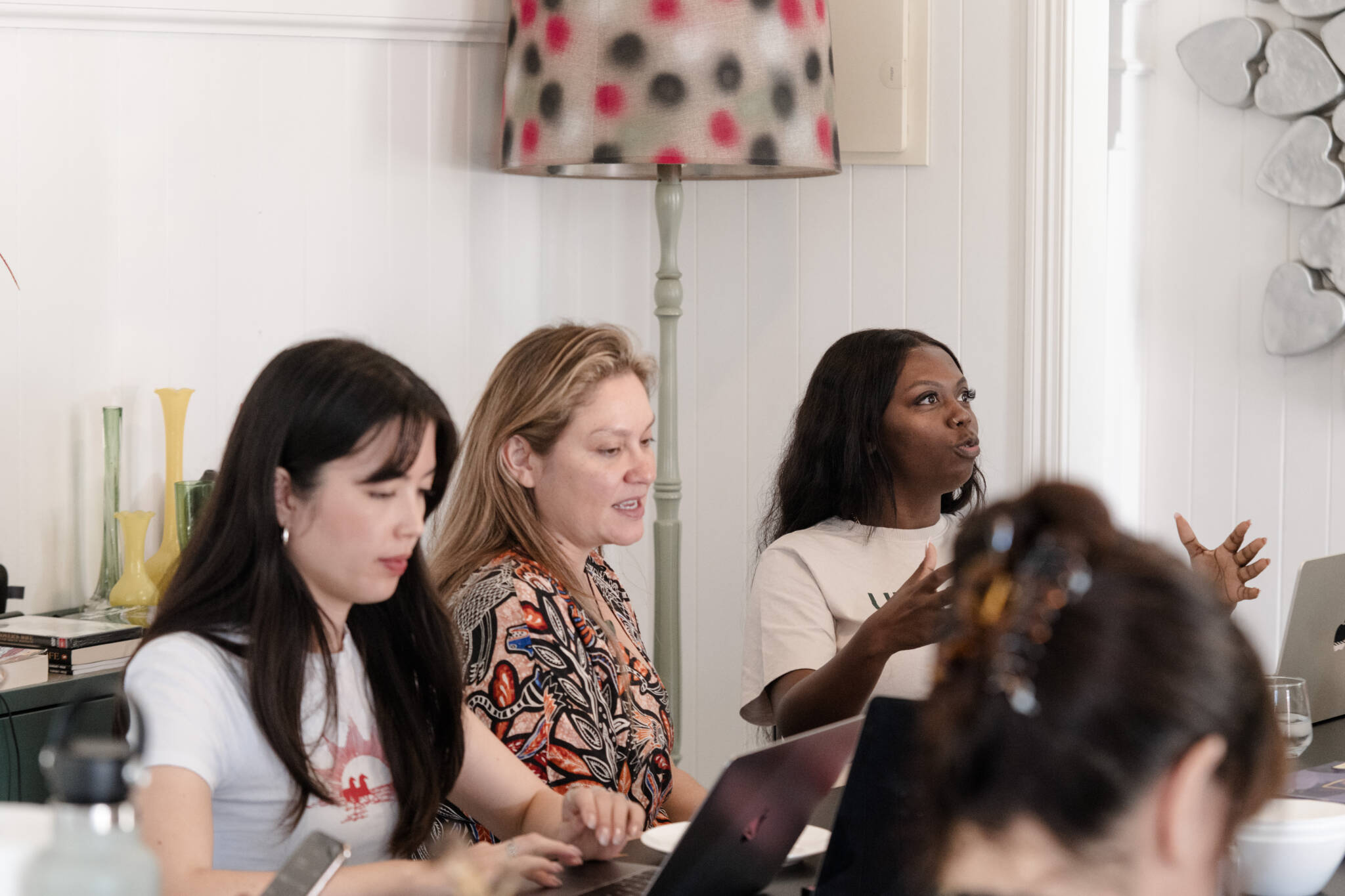
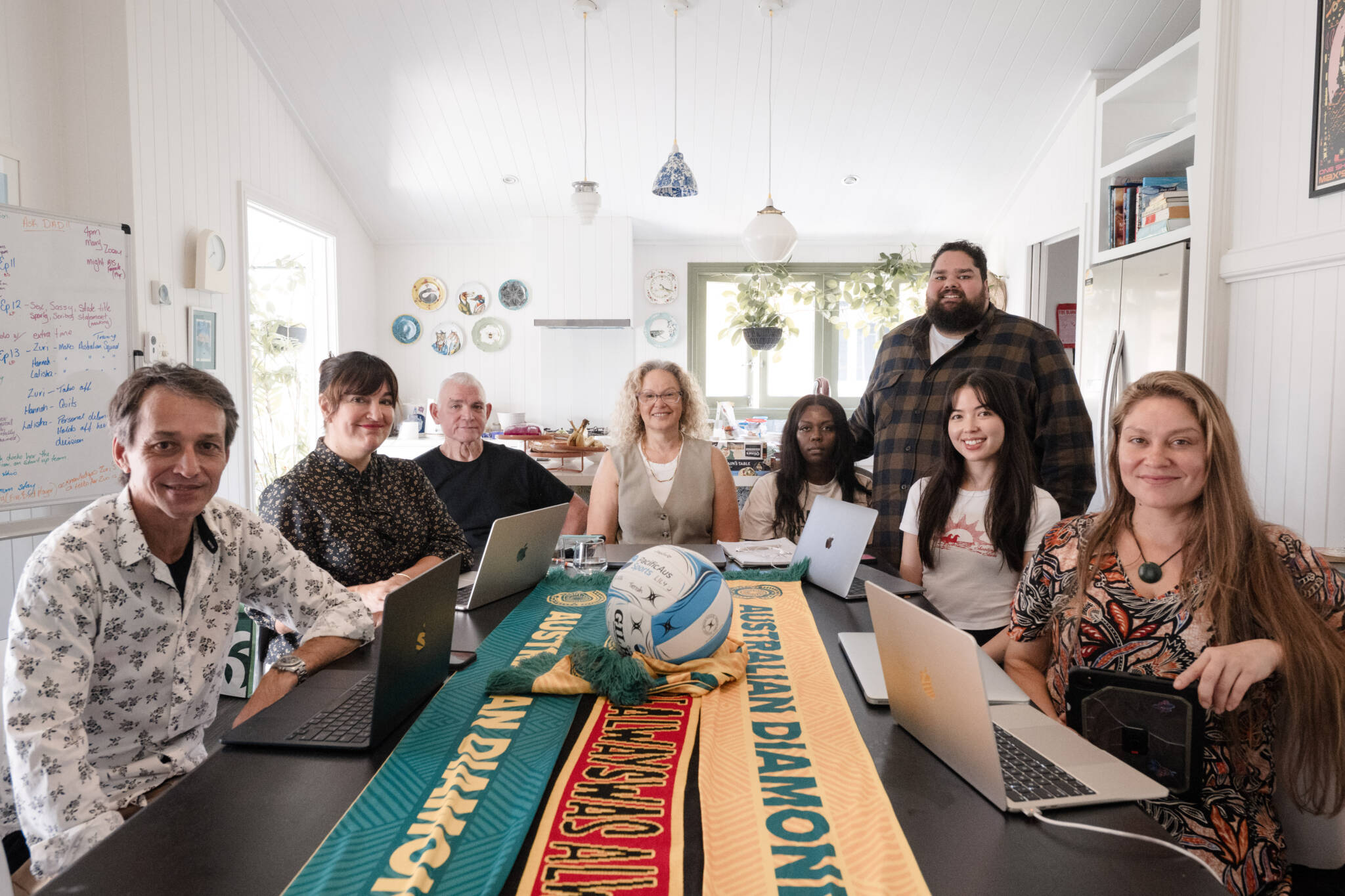
With the support of Screen Queensland’s Attachment Program, Oombarra Productions invited emerging practitioners into the development. Bain Stewart said that the attachments all brought fresh ideas to the process and learned a lot from the industry veterans and creatives that they worked with.
“Netball had four First Nations attachments across the workshop—Che Skeen, Ben Southwell, Waverley Stanley Jnr and Tibian Wiles. We also had Muraya Moore, a woman of colour, as the notetaker, making it a wonderful mix of young, emerging Queensland screen talent feeding off, learning from and being exposed to what was a unique writers’ room,” Bain said.
“The next step for us now is to come up with a first draft pilot script and some additional assets to begin the process of going out into the marketplace and testing the material.
“We would like to thank, specifically, Lisa Duff, Oombarra Production’s Executive Producer, Bernadette O’Mahoney, Head of Content at the Australian Children’s Television Network for co-funding Netball, as well as Screen Queensland’s Danielle Ah Boo, the Head of Aboriginal and Torres Strait Islander Unit and CEO Jacqui Feeney. We are grateful for their unwavering support of Leah and Oombarra —not only for the Netball project but also the slate development funding to be able to hold this landmark Blak writers’ room in Meanjin-Brisbane.”
Find out more about Screen Queensland’s Development funding for production slates. Follow Oombarra Productions on Instagram and Facebook as they progress Netball and their other new projects, Koa Kid and Is That You, Ruthie?.
All images by Jade Ferguson, Visual Poets Society



